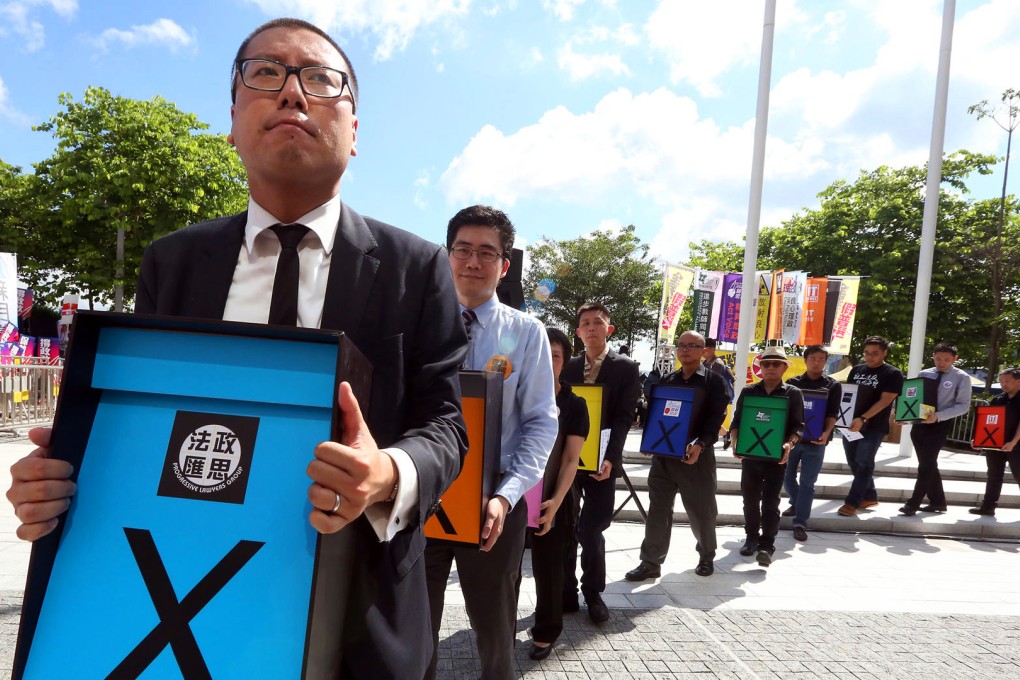The day Hong Kong's Legco entered a parallel universe
Passionate pan-democrats decry plan that would give votes to all while Beijing loyalists back it

The Legislative Council chamber was a surreal place yesterday.
Pan-democrats who had fought for years for democracy decried a government package that would allow Hong Kong people to choose their leader by one person, one vote. Their Beijing-loyalist rivals, hardly known as staunch pro-democrats, argued in favour of universal suffrage.
While supporters and opponents of reform made a colourful pitch outside, the atmosphere inside the chamber was sombre. Some lawmakers were close to tears, while others quoted Shakespeare or George Orwell to make their points on the first day of the historic debate.
Each lawmaker had just 15 minutes to speak, and their remarks boiled down to a question of whether to trust in Beijing to offer "genuine universal suffrage" in future, with little said about the details of the proposal.
Civic Party leader Alan Leong Kah-kit - one of the 27 pan-democrats who have vowed to vote down the proposal - was first to speak, condemning the package as misleading and worse than no change. "As the famous saying in William Shakespeare's Hamlet goes: To be or not to be. The political reform this time is in the same position: To be or not to be," he said.